Key highlights
- Learn what WooCommerce hosting is and how it supports online store performance.
- Compare WooCommerce, Shopify and WordPress hosting to choose the right fit for your goals.
- Follow five clear steps to select a hosting provider based on features, testing and long-term value.
- See how top hosting providers compare side by side in a comparison table.
- Discover why Bluehost is a trusted choice for WooCommerce with built-in tools and expert support.
Before you add your first product or design a storefront, there’s one decision that you need to make first. Choosing the right WooCommerce hosting provider. It’s the foundation that powers your store’s speed, security and shopping experience behind the scenes.
But even with a perfect storefront and top-selling products, poor eCommerce hosting can cost you sales. Imagine a customer adds items to their cart, enters payment info and the page lags. Even a one – second delay in load time can reduce conversions by up to 7%.
Choosing the right WooCommerce host isn’t easy. With so many web hosting companies promising “unlimited” features, the decision can be confusing.
That’s why this guide breaks it all down for you. We’ll cover what WooCommerce hosting really is, how it differs from other options and which features you need.
You’ll also find step-by-step tips to compare hosting providers and avoid common mistakes so you can launch your online store with ease and confidence.
What is WooCommerce hosting?
WooCommerce hosting is a type of web hosting designed specifically for online stores that use WordPress. It supports secure transactions, product catalogs and plugin-heavy setups common in eCommerce.
Standard WordPress hosting works well for blogs or service-based websites. However, it often lacks the performance and reliability required for running an online eCommerce store. That’s why many businesses turn to WooCommerce hosting options.
They are tailored for fast load times, seamless checkouts and consistent uptime even during peak traffic.
To meet these demands, your online store needs more than a basic server. A WooCommerce-optimized host ensures secure payment processing and efficient customer data management. It also maintains fast load times during traffic surges.
At Bluehost, we provide that infrastructure with pre-installed WooCommerce, high-speed SSD servers and tools designed to support growing stores.
Now that you understand what WooCommerce hosting is, let’s compare it with other popular options, such as Shopify and standard WordPress hosting.
WooCommerce hosting vs. Shopify vs. WordPress hosting

Choosing the right platform depends on your store’s size, technical skills and growth goals. Each platform has its own pros and cons worth weighing. Furthermore, you also must consider your budget and customization needs.
Here’s a quick comparison of WooCommerce, Shopify and WordPress hosting to help you choose the right one:
| Feature | WooCommerce hosting | Shopify | WordPress hosting |
| Platform type | Open-source plugin for WordPress | Fully hosted eCommerce platform | Managed hosting for WordPress sites |
| Customization | Full control with plugins and themes | Limited customization options | High for sites, but lacks built-in eCommerce |
| Ease of use | Moderate setup; best for WordPress users | Very beginner-friendly | Easy for blogs or content-heavy sites |
| eCommerce tools | Extensive with WooCommerce plugins | Built-in tools, but limited flexibility | Requires add-ons for selling |
| Transaction fees | None (except payment gateways) | Additional fees unless using Shopify Payments | None (depends on eCommerce plugins used) |
| Design options | Thousands of free/premium themes | Fewer templates, mostly paid | Wide range for content sites |
| Hosting control | Full access to files, server settings and backups | No access to server settings | Depends on web hosting providers |
| SEO flexibility | Excellent with plugins like Yoast SEO | Good but limited SEO plugin integration | Strong for content, less built-in for stores |
| Best for | Growing online stores needing complete control and scalability | Beginners wanting a plug-and-play solution | Bloggers, service sites or simple sites |
We conclusively see that WooCommerce is a far better option because it offers control and scalability for their WordPress website. This makes it an ideal choice for growing online stores.
Shopify, on the other hand, is easier to set up but comes with trade-offs in customization and fees. Standard WordPress hosting is best suited for content-first sites, but it lacks built-in eCommerce capabilities.
We at Bluehost support this with specialized WooCommerce hosting that’s optimized for performance, security and ease of use.
Whether you’re just starting out or planning to scale, Bluehost offers comprehensive WooCommerce hosting. These solutions cater to every eCommerce need.
Once you’ve determined that WooCommerce suits your needs, the next step is to choose a hosting provider that aligns with your store’s requirements. So, to make an informed decision, you need to ideally follow a structured approach that evaluates key factors such as performance, features and support.
Let’s examine these steps in detail.
Step 1: Define your online store’s requirements
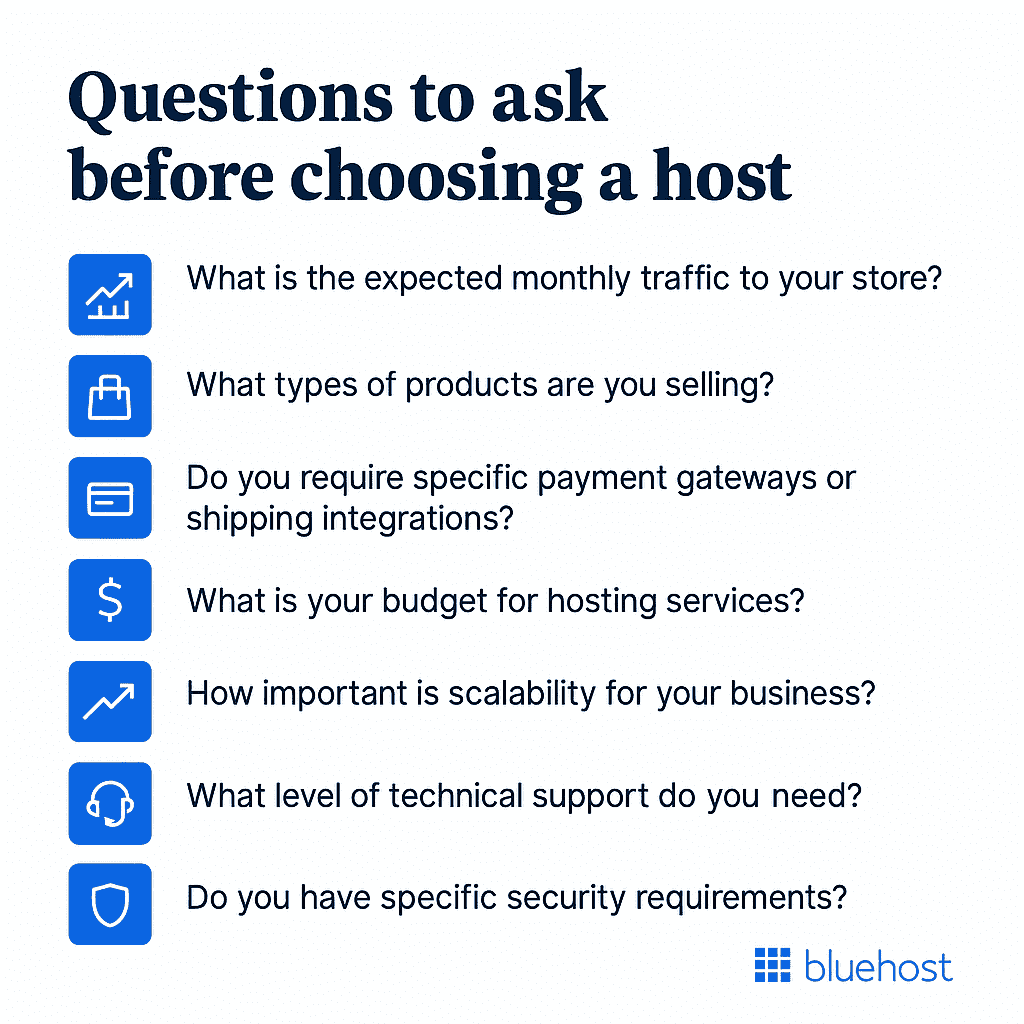
First, you need to understand what your eCommerce store truly needs to succeed before selecting a WooCommerce hosting provider. This makes it easy for you to choose a hosting provider that aligns with your business goals and provides the necessary resources for optimal performance.
Questions to ask before choosing a host
This checklist will help you define all the key requirements of your online store:
- What is the expected monthly traffic to your store?
- Estimate your average and peak traffic to ensure the host can handle your eCommerce site’s load without performance issues.
- What types of products are you selling?
- Consider whether your products are digital, physical or a combination of both, as this affects storage and bandwidth requirements.
- Do you require specific payment gateways or shipping integrations?
- Ensure the host supports the necessary plugins or integrations for your preferred payment and shipping methods.
- What is your budget for hosting services?
- Know your budget limitations to find a hosting plan that offers the best value without compromising on key features.
- How important is scalability for your business?
- If your primary focus is on growth, select a host that enables easy scaling of resources to accommodate increased traffic and sales.
- What level of technical support do you need?
- Assess whether you need 24/7 support or managed services or if you have the expertise to handle technical issues independently.
- Do you have specific security requirements?
- Advanced security features, such as SSL certificates, regular backups, malware scanning and firewalls, are crucial for protecting your online store and customer data. Hence, shortlist all your security requirements.
All in all, you can create a clear profile of your hosting needs by answering these questions. These answers help you compare and choose the best WooCommerce hosting providers that fit your store’s needs now and as it grows.
Also read: How to Plan and Set Up a Successful Online Store
Step 2: Choose the right type of hosting for WooCommerce
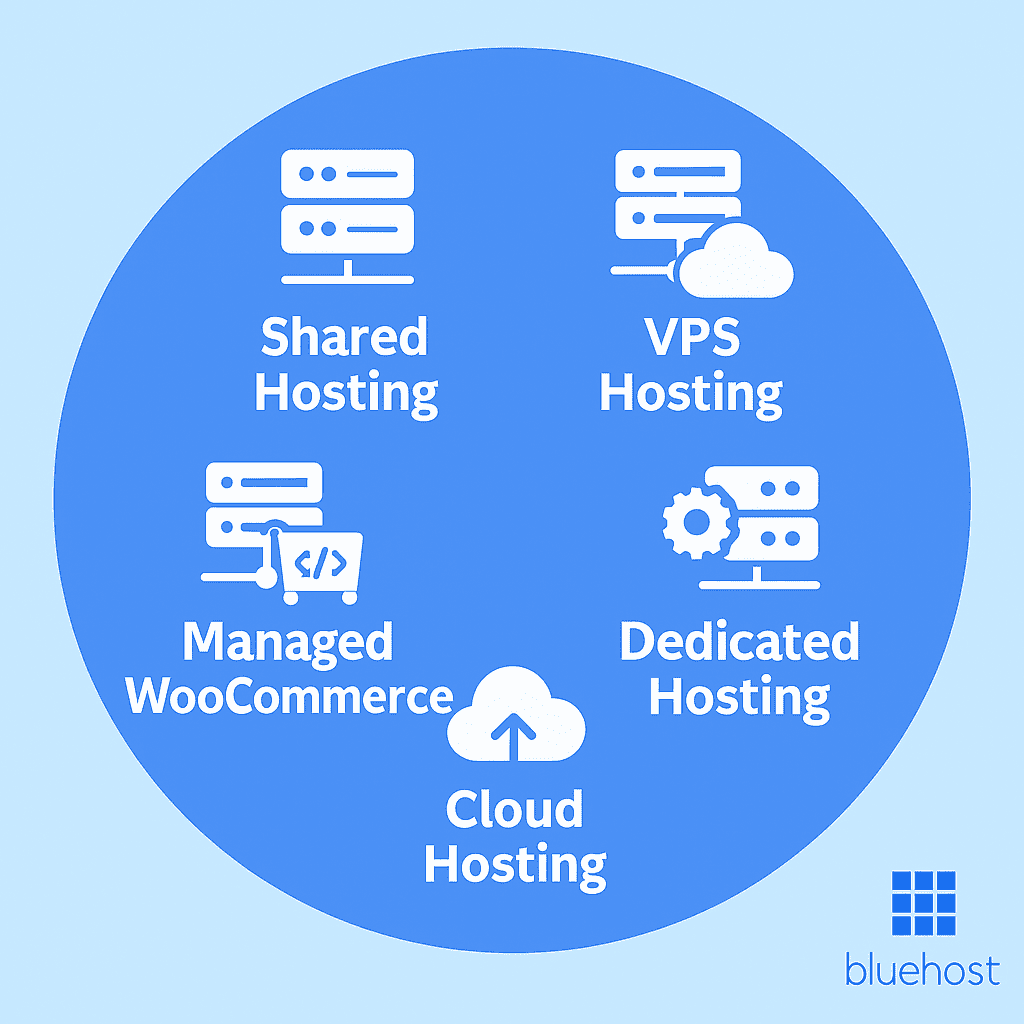
Once you are sure about your store’s needs, you can then choose the hosting type that supports them. Each type comes with pros, cons and different levels of flexibility.
Use the table below to compare the five main WooCommerce hosting options:
| Hosting type | Pros | Cons | Best for |
| Shared hosting | Cheapest, beginner-friendly | Slower, limited control | Small stores with low traffic |
| VPS hosting | More power, better control | Higher cost, some tech skill needed | Growing online stores with more needs |
| Cloud hosting | Scalable, high uptime | Complex setup, variable pricing | Stores with traffic fluctuations |
| Dedicated hosting | Full control, top performance | Expensive, advanced to manage | Large stores needing robust security measures |
| Managed WooCommerce | Optimized, maintenance included | Higher cost, less backend control | Store owners wanting simplicity |
Now, let’s break down each option to help you decide what fits your store best.
1. Shared hosting
Shared hosting is an affordable solution where multiple websites share the same server resources. It’s ideal for small businesses or startups with limited budgets and low traffic volumes.
Think of shared hosting like living in an apartment building. Each resident has their own unit, but everyone shares common utilities like water, electricity and maintenance services.
Similarly, in shared hosting, each website has its own space on the server but shares resources such as memory and bandwidth with other sites.
Pros:
- It is the most affordable option, suitable for startups and small businesses.
- Easy to set up with minimal technical knowledge required.
Cons:
- Limited resources are shared among multiple websites, which can affect performance.
- Less control over server settings and configurations.
Best For: Small businesses or startups with low traffic and limited budgets.
2. VPS hosting
Virtual Private Server (VPS) hosting provides a dedicated portion of a physical server, offering more control and resources than shared hosting. It’s suitable for growing businesses that require better performance and customization.
VPS is much like owning a condominium in a shared building. You have your own private unit with dedicated utilities and more control over your space, unlike renters in shared apartments.
Likewise, with VPS hosting, you get a reserved slice of the server’s resources, giving you more power and flexibility than shared hosting.
Pros:
- Provides dedicated resources, ensuring better performance than shared hosting.
- Greater control over server configurations.
Cons:
- Requires more technical expertise to manage.
- More expensive than shared hosting.
Best For: VPS hosting is ideal for growing businesses that require enhanced performance and greater control.
3. Cloud hosting
Cloud hosting is more like storing your files in the cloud instead of on a single USB drive. If one storage point fails, another takes over seamlessly.
In addition, cloud hosting uses multiple virtual servers to keep your site running smoothly, even during traffic spikes.
Pros:
- Highly scalable, allowing resources to be adjusted based on traffic demands.
- Offers high uptime and reliability.
Cons:
- It can be more expensive than other hosting types.
- Complex pricing models may be confusing.
Best For: Businesses experiencing fluctuating traffic and requiring scalability.
4. Dedicated hosting
Dedicated hosting provides an entire server exclusively for your website, offering maximum performance and control. It’s suitable for large businesses with high traffic volumes and specific security requirements.
You can think of it as a standalone house where you have complete control over the property, from the layout to the utilities.
Pros:
- Complete control over server resources and configurations.
- High performance and security.
Cons:
- it’s the most expensive hosting option.
- Requires advanced technical knowledge to manage.
Best For: Large enterprises with high traffic and specific security requirements.
5. Managed WooCommerce hosting
Managed WooCommerce hosting is a specialized service where the hosting company handles all technical aspects, including updates, backups and security. In simple terms, this hosting optimizes the server specifically for WooCommerce performance.
It’s ideal for store owners seeking a hassle-free eCommerce hosting experience.
Pros:
- Optimized specifically for WooCommerce, ensuring better performance.
- Includes maintenance, updates and security features.
Cons:
- Higher cost compared to unmanaged hosting.
- Less flexibility in server configurations.
Best For: Store owners seeking a hassle-free hosting experience with expert support.
By understanding the pros and cons of each hosting type, you can make an informed decision that aligns with your store’s needs and growth plans. However, beyond the hosting type, ensure that your chosen hosting provider offers features optimized specifically for WooCommerce.
Let’s now look at the must-have features you should look for in a WooCommerce hosting plan.
Step 3: Must-have WooCommerce hosting features
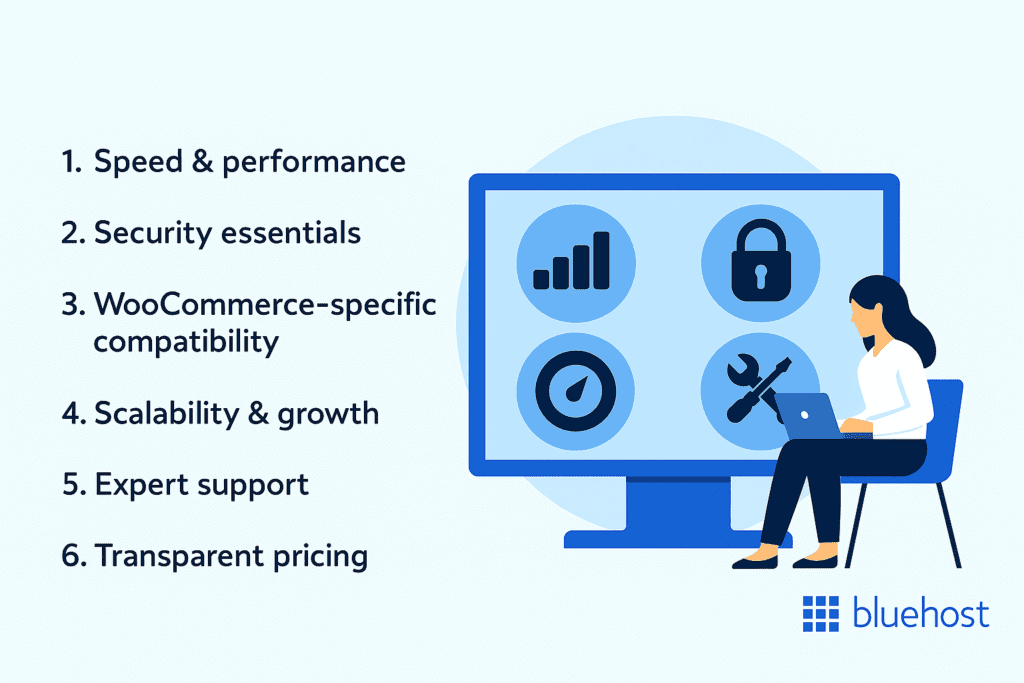
Choosing a hosting provider with the right features enables your WooCommerce store to run efficiently and grow with your business. Make sure your hosting plan includes the following essential features:
1. Speed and performance
- Optimized servers: Ensure the hosting provider offers servers optimized for WooCommerce, including features like built-in caching and CDN integration.
- SSD storage: Look for SSD storage options that can significantly improve your site’s load times.
- High uptime guarantee: Opt for providers that offer a minimum 99.9% uptime guarantee to ensure your online store remains accessible.
2. Security essentials
- Free SSL certificate: An SSL certificate is vital for securing customer data and transactions.
- Regular backups: Daily or weekly backups ensure you can restore your site in case of data loss.
- Malware scanning and removal: Automatic malware detection and removal protect your site from threats.
Bluehost WooCommerce hosting offers built-in security features like free SSL, malware protection, domain privacy and daily backups to keep your site secure and compliant.
3. WooCommerce-specific compatibility
- Pre-installed WooCommerce setup: Saves time and ensures plugin compatibility is handled from day one.
- Staging environment for live testing: This lets you safely test coupons, checkout flows or plugin updates before going live.
- Managed core updates: Look for automatic updates that cover WooCommerce, payment gateways and WooCommerce-dependent plugins.
4. Scalability and growth
- Room to scale: Choose a host that allows you to add CPU, RAM or storage without downtime as your eCommerce store expands.
- Traffic-ready plans: Your online store should stay fast, even during flash sales or seasonal peaks.
- Built-in WooCommerce tools: Look for extras like product filtering, wishlists or loyalty programs that don’t require third-party plugins.
5. Expert support
- 24/7 customer support: Round-the-clock support ensures issues are resolved promptly.
- WooCommerce expertise: Support staff should be knowledgeable about WooCommerce-specific issues.
- Multiple support channels: The availability of chat, email and phone support provides flexibility.
6. Transparent pricing
- Clear pricing structure: Avoid hosts with hidden fees; ensure all costs are transparent.
- Money-back guarantee: A refund policy allows you to test the service risk-free.
- No long-term contracts: Flexible billing options without long-term commitments offer greater control.
While all these key features tell you what to look for, it’s just as important to know which web hosting providers actually deliver them. That’s where comparison matters.
Step 4: Compare top WooCommerce hosting providers
While many providers claim WooCommerce compatibility, not all deliver the performance, reliability or built-in tools essential for a thriving online store. To get a clear understanding of overall performance of some of the best WooCommerce hosting options, we will compare the key features across top hosting options for 2025.
| Hosting provider | WooCommerce ready | Free SSL | CDN | Support type | Best for |
| Bluehost | Pre-installed | Yes | Yes | 24/7 WooCommerce support | Beginners and growing stores |
| SiteGround | Add-on support | Yes | Yes | 24/7 chat and phone | Speed-focused smaller stores |
| Hostinger | 1-click install | Yes | Yes | Live chat only | Budget-conscious small stores |
| WP Engine | Optimized stack | Yes | Yes | 24/7 WordPress experts | High-traffic or enterprise sites |
| Kinsta | Custom setup | Yes | Yes | Chat with engineers | Large or scaling WooCommerce |
Also read: Compare WooCommerce Hosting Plans and Cost
Since we have compared the top WooCommerce hosting providers for 2025, let us look at each hosting provider one by one.
1. Bluehost

Bluehost’s WooCommerce hosting comes with WordPress pre-installed, where you can launch your online store effortlessly without manual setup.
Our platform includes WonderCart, WonderBlocks and free features such as a domain, SSL and Content Delivery Network (CDN). You also get access to 24/7 support from WooCommerce-trained specialists.
Best for: New store owners, growing businesses and users who want built-in tools with expert help.
2. SiteGround
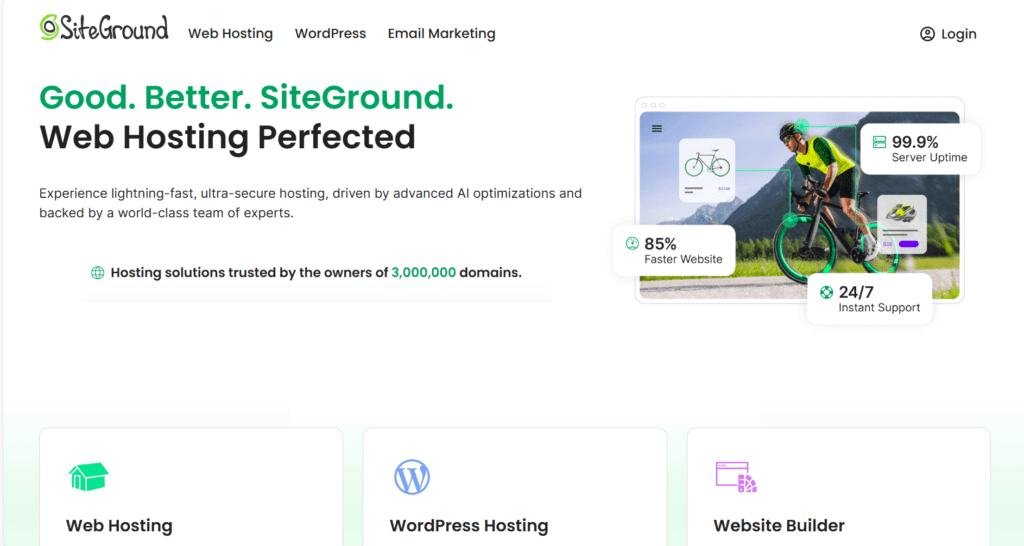
SiteGround supports WooCommerce with built-in caching, daily backups and automatic updates. Their platform is tuned for performance and the support team is fast and knowledgeable.
Best for: Store owners who prioritize speed, uptime and proactive support.
3. Hostinger
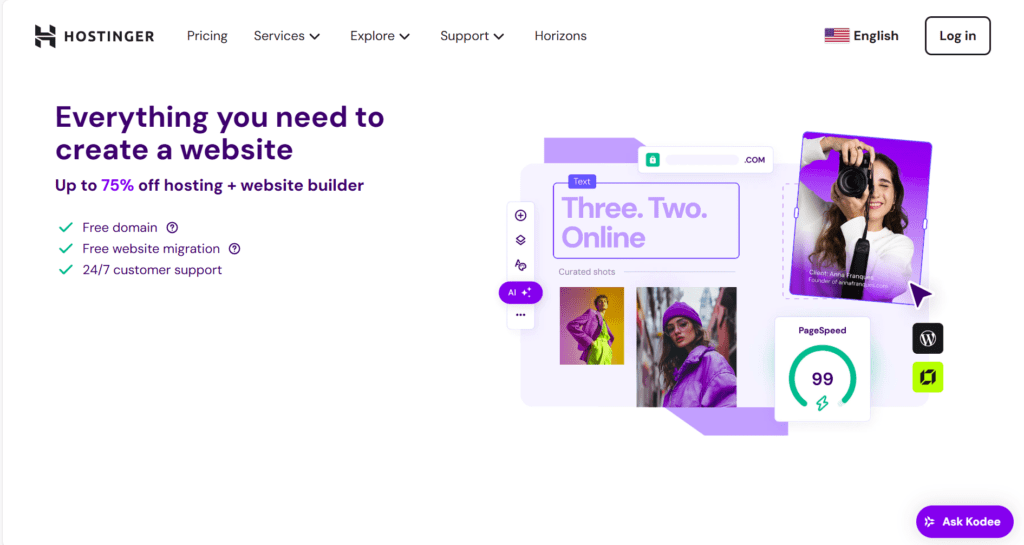
Hostinger offers WooCommerce compatibility at an affordable price. SSD storage, free SSL and LiteSpeed caching are all included. However, support is limited to chat only, with fewer advanced tools available.
Best for: Solo entrepreneurs and small stores on a tight budget.
4. WP Engine
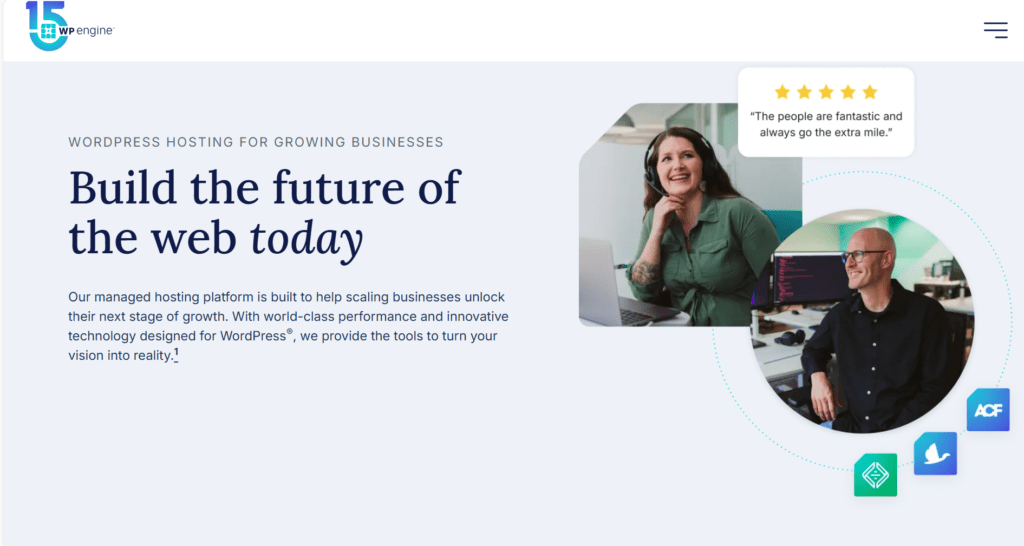
WP Engine delivers premium performance and uptime with a WooCommerce-optimized hosting stack. You get access to development and staging environments along with advanced caching.
Best for: Established businesses with extensive catalogs or marketing teams that need dev workflows.
5. Kinsta
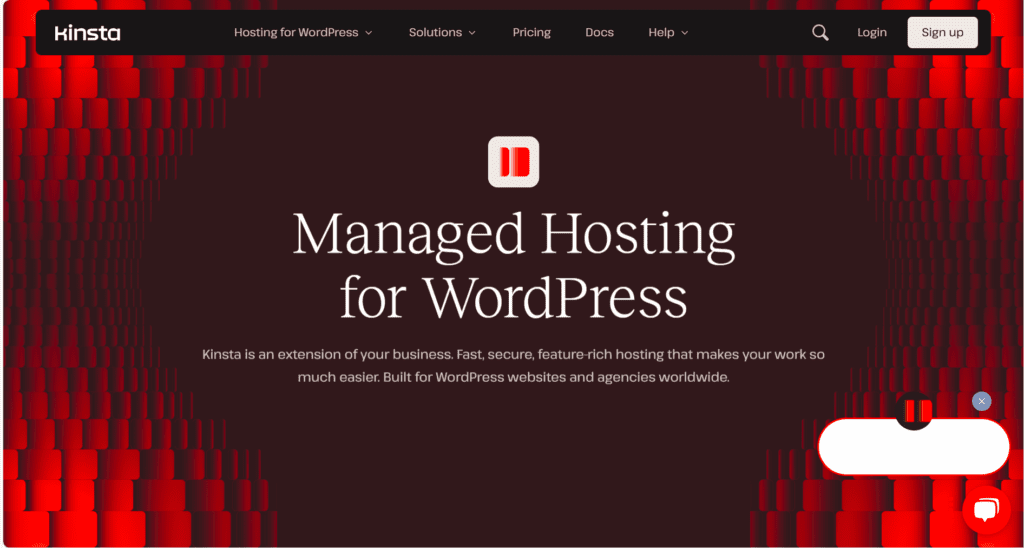
Kinsta runs on Google Cloud and is tailored for WooCommerce performance. It includes auto-scaling, daily backups and developer-grade support. It’s one of the most reliable choices for high-growth stores.
Best for: Large-scale WooCommerce operations and businesses expecting heavy traffic or rapid expansion.
Even with a clear winner in mind, it’s worth taking time to test how a host performs in real-world conditions before making your final decision.
Step 5: Test before you commit
Before locking in a hosting plan, take time to see how well it supports your WooCommerce store. Even minor issues, such as plugin conflicts or slow cart loading, can impact conversions.
1. Take advantage of free trials or refund windows
Select a host that offers a money-back guarantee or a free trial period. Use this period to install your WooCommerce theme and plugins, set up a few products and check how quickly your dashboard and storefront load.
Test basic store functions, such as adding products to the cart, using filters or applying coupons.
If anything feels sluggish or buggy, it’s better to know now than regret later.
2. Use staging environments for safe testing
A staging site lets you test changes without affecting your live store. Use it to try plugin updates, theme changes or new checkout flows. This is especially useful if you plan to customize product pages or add advanced functionality, such as subscriptions.
Also read: What is a Staging Website and Do You Need One in 2024?
3. Check support responsiveness
Reach out to the host’s support team with a fundamental question, even if you already know the answer. This gives you a sense of how quickly and helpful their agents are. If you’re experiencing WooCommerce-specific issues, ensure their team is aware of how to resolve them.
4. Read unfiltered user reviews
Look for genuine checks on platforms such as G2, Trustpilot or Reddit. Pay attention to uptime consistency, customer support experience and WooCommerce compatibility. Skip generic star ratings and look for specific patterns in user complaints or praise.
Now, once you’re confident in a provider’s performance, the final step is checking if they offer long-term value with WooCommerce-focused support. That’s where Bluehost stands out.
Why is Bluehost a better option for WooCommerce hosting?
Choosing the right WooCommerce host means finding a partner that offers more than just server space. At Bluehost, we combine eCommerce-ready tools, reliable performance and expert support to help your store grow.
1. Seamless WooCommerce integration and quick setup
- With pre-installed WooCommerce, you can start building your store right away.
- Our onboarding guides walk you through adding products, selecting a theme and setting up payments.
- You also get a free domain for the first year and an SSL certificate to secure your site.
2. Built-in tools to help your store grow
- WonderCart is a built-in tool that enables your online store to offer shopping cart functionality and product displays with minimal setup.
- You can offer subscriptions, gift cards and discount codes right from the dashboard.
- Multichannel tools let you sell across marketplaces and manage orders in one place.
3. Scalable hosting designed for eCommerce site
- Start small and upgrade as your traffic increases with flexible plans.
- Our platform includes SSD storage, built-in caching and free CDN integration for fast load times.
- PCI compliance support is available to help you meet payment standards as your store grows.
4. 24/7 expert support that understands WooCommerce
- Our support team is trained to help with WooCommerce-specific issues.
- Reach us by chat or phone anytime.
- You can also browse tutorials and step-by-step guides in our knowledge base.
With Bluehost, you get more than hosting. You get a complete platform to build, manage and scale your WooCommerce store with confidence.
So, what are you waiting for? Take your store live now with no delays or confusion.
You get preinstalled WooCommerce, unlimited products, daily backups, built-in marketing tools and more.
Additionally, Bluehost offers free domain. You can get yours today and start selling with Bluehost.
What are the common mistakes to avoid in WooCommerce hosting?
Even with a proper checklist, many store owners encounter issues because they overlook their long-term hosting needs. Here are some of the most common mistakes and how to avoid them.
1. Choosing price over performance
It’s tempting to choose the cheapest hosting plan, especially when you’re just starting. But low-cost plans often come with limited server resources, slower load times and weaker uptime guarantees. All these affect your customer experience and your ability to convert traffic into sales.
2. Ignoring WooCommerce-specific needs
Not all hosting is WooCommerce-friendly. Generic hosting plans may lack features such as optimized caching, product filters or checkout support. You may also encounter issues with plugin compatibility or slow admin dashboards.
Therefore, ensure that your host is optimized for WooCommerce from the outset.
3. Overlooking scalability and support
Your store may be small today, but traffic can spike rapidly, especially during sales or seasonal events. If your host can’t scale easily or doesn’t offer fast, reliable support, you’ll run into performance issues when it matters most.
4. Falling for “unlimited everything” myths
Many hosts advertise unlimited bandwidth or storage, but there are always limits in the fine print. Your site may throttle if you use excessive server resources or exceed soft caps.
Hence, look for a host with transparent plan details and realistic usage guidelines.
Final thoughts
WooCommerce hosting plays a critical role in how your store performs, scales and earns customer trust. Without a reliable hosting provider, even a great product or design can fall short.
However, the good news is choosing the right WooCommerce isn’t as complicated as it looks.
Once you’ve assessed your store’s needs, compared hosting types and identified essential WooCommerce features, you’ll find that Bluehost checks all the boxes.
Bluehost offers preinstalled WooCommerce, a free domain, daily backups and marketing tools like WonderCart and WonderBlocks. All plans include 24/7 support from WordPress-trained experts who know how to keep your store running smoothly.
Whether you’re launching your first product or scaling an established business, we have hosting solutions that grow with you. Get started with Bluehost today and bring your online store to life in just a few clicks.
FAQs
WooCommerce hosting is a type of WordPress hosting optimized for online stores. It includes pre-installed WooCommerce, performance enhancements and tools built for eCommerce.
All WooCommerce hosting is based on WordPress, but not all WordPress hosting supports WooCommerce features. WooCommerce hosting includes store-specific tools such as cart optimization, checkout security and plugin compatibility.
Yes. It saves time by handling updates, backups and performance optimization for you. This allows you to focus on running your store rather than managing the server.
First, back up your site and choose a new provider. Use a migration plugin like Duplicator or All-in-One WP Migration, then test your site and update DNS settings to complete the transfer.
Yes. Most WooCommerce hosts, including Bluehost, offer upgrade paths as your traffic and product catalog grow.
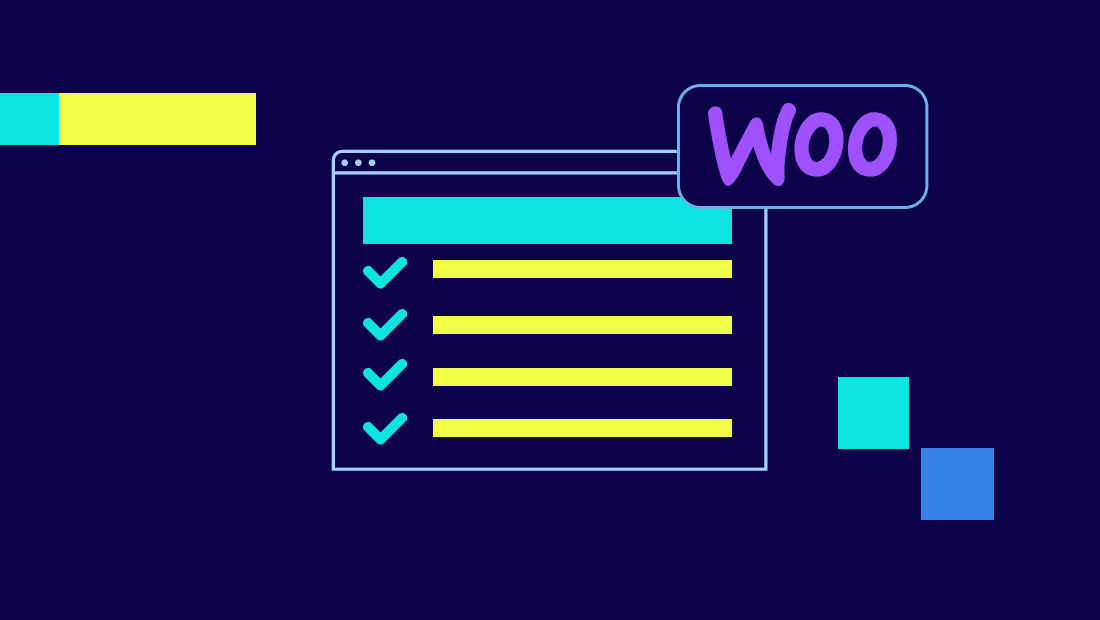

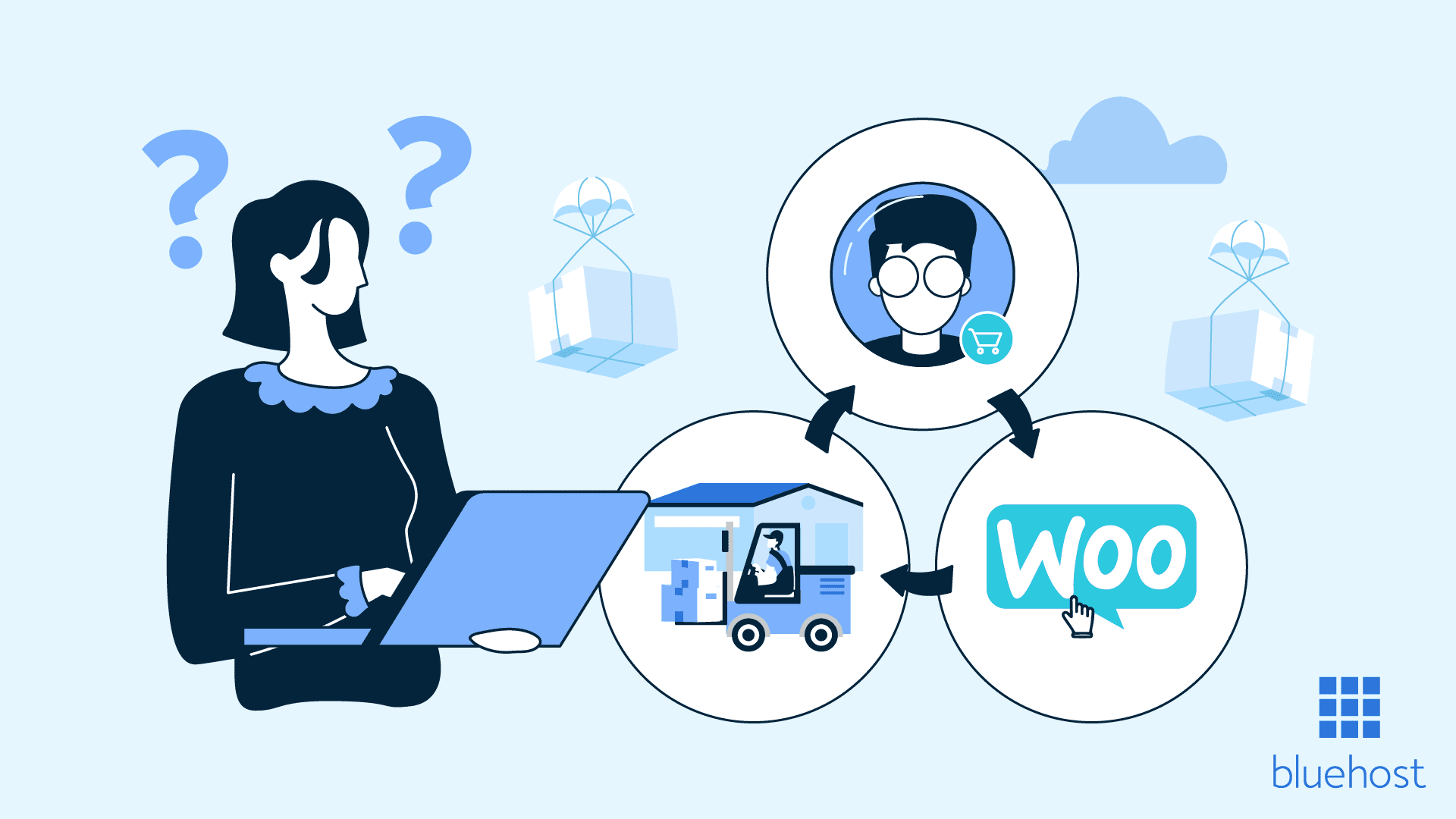
Write A Comment